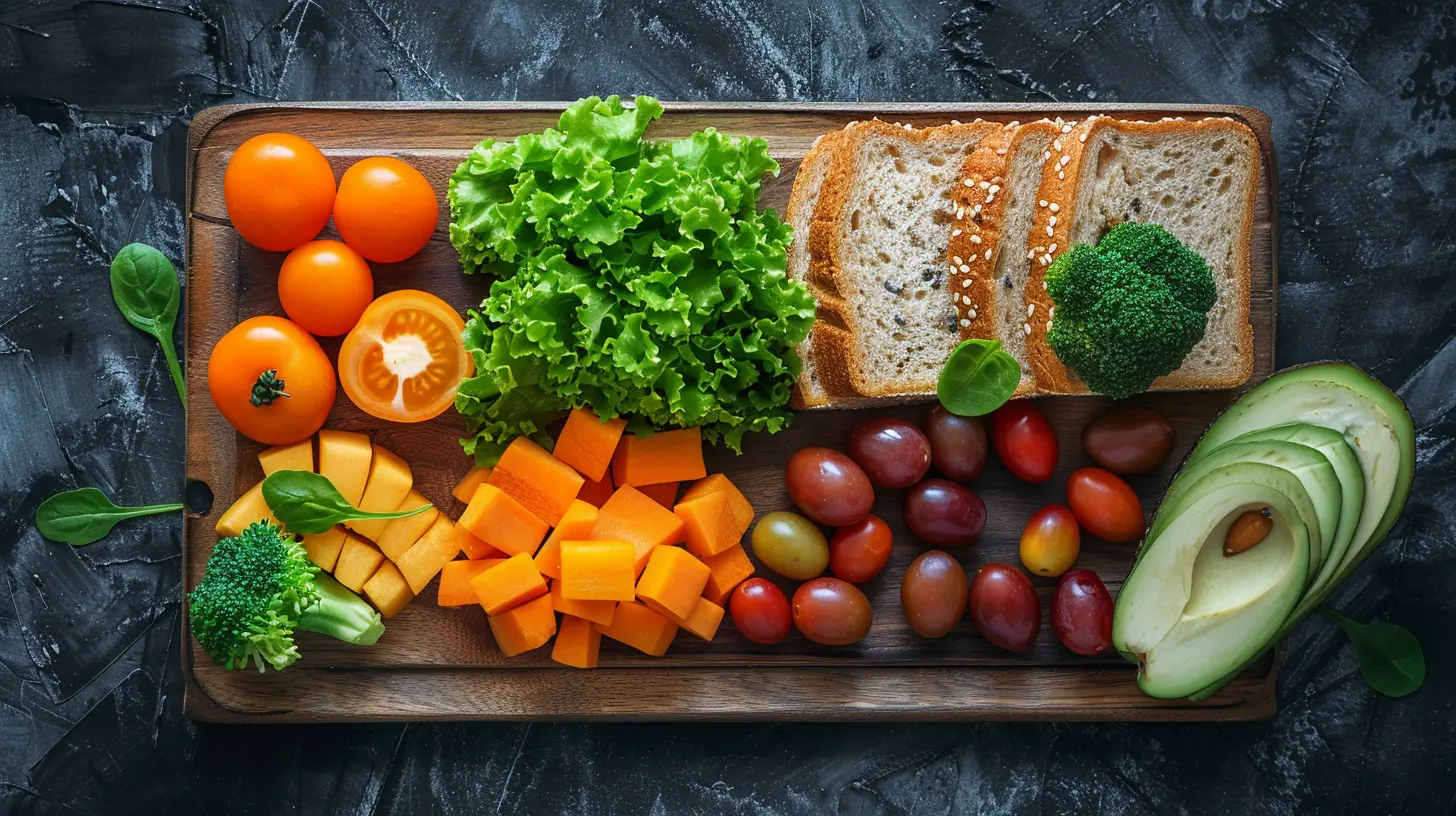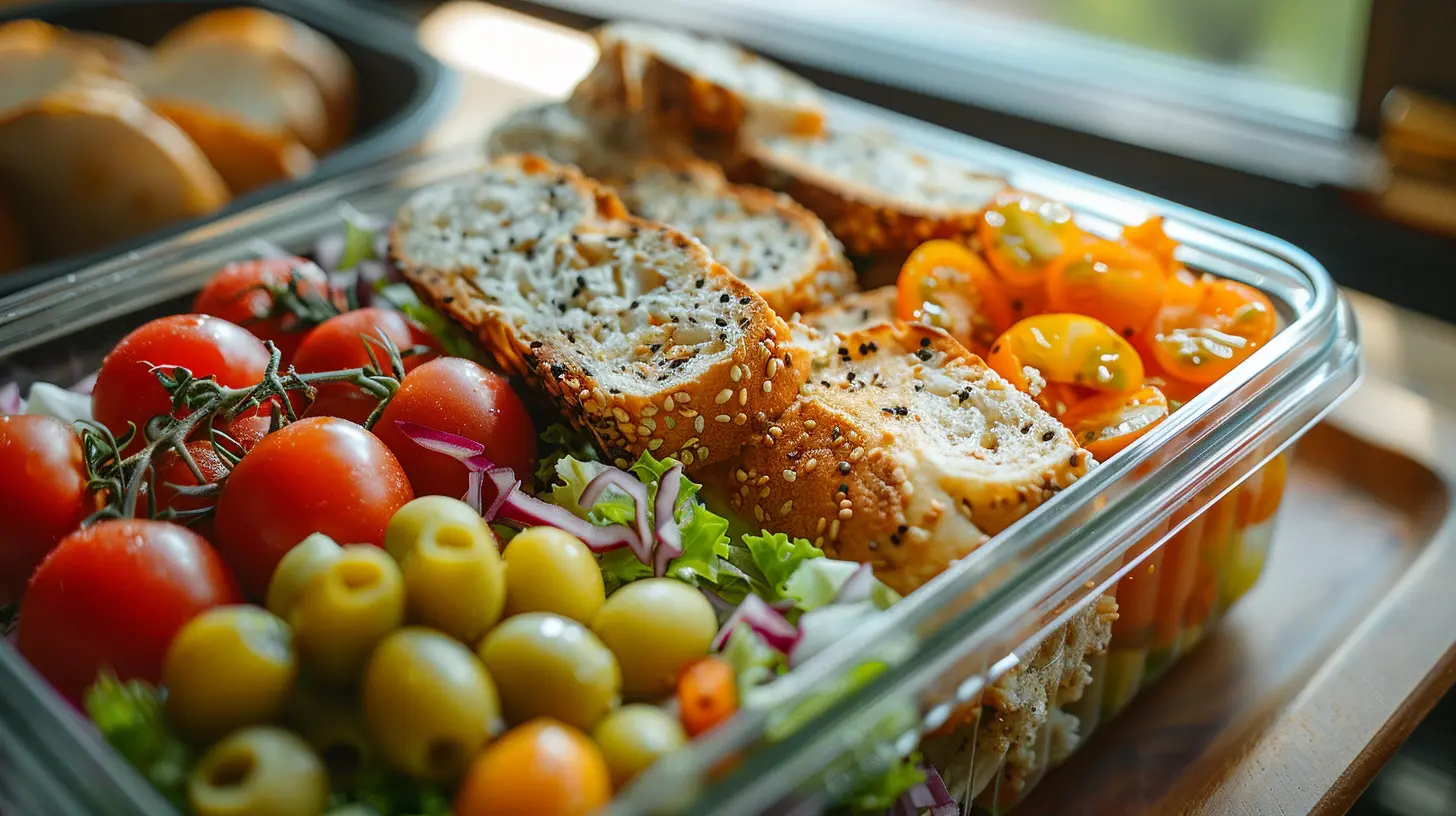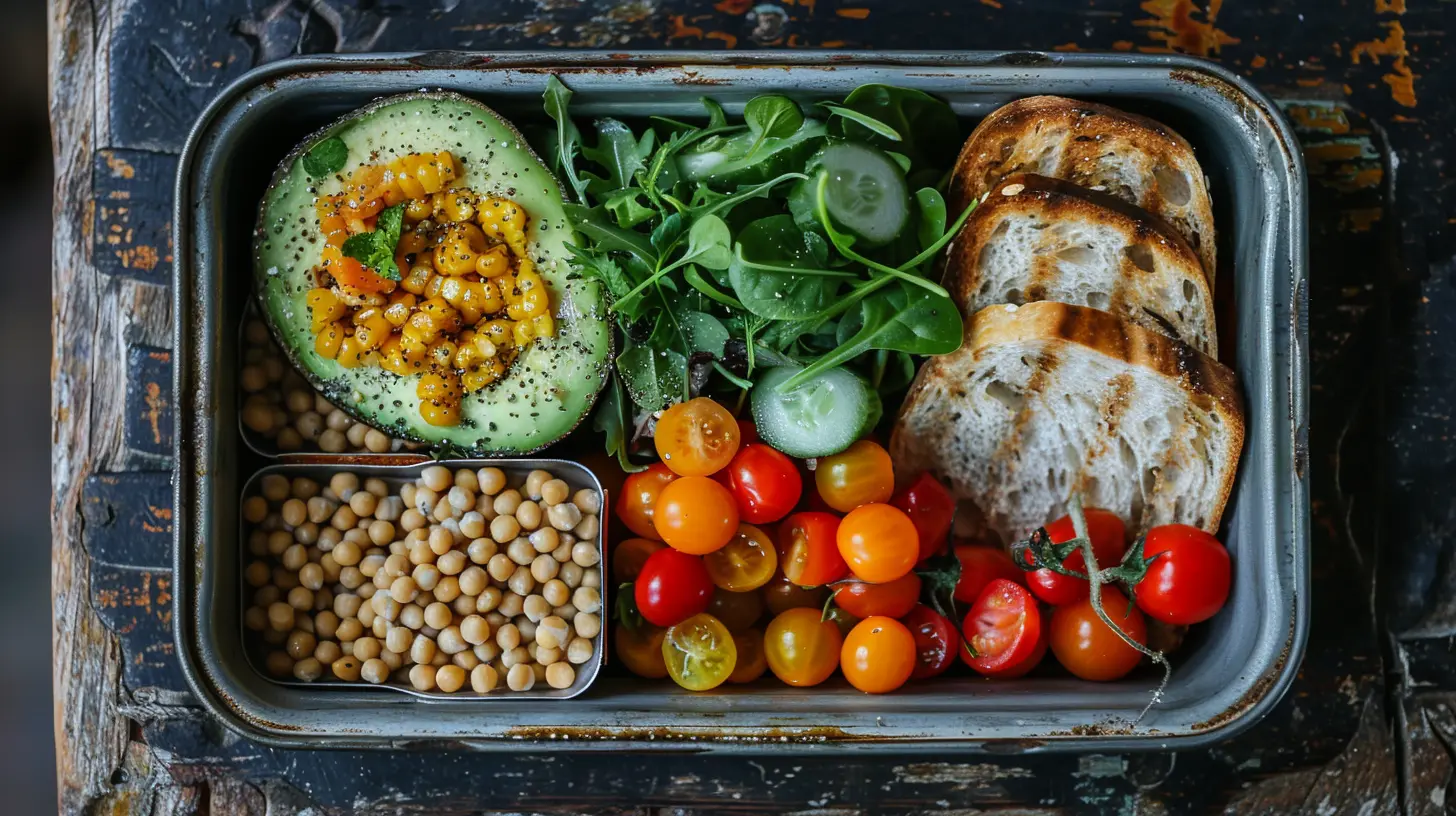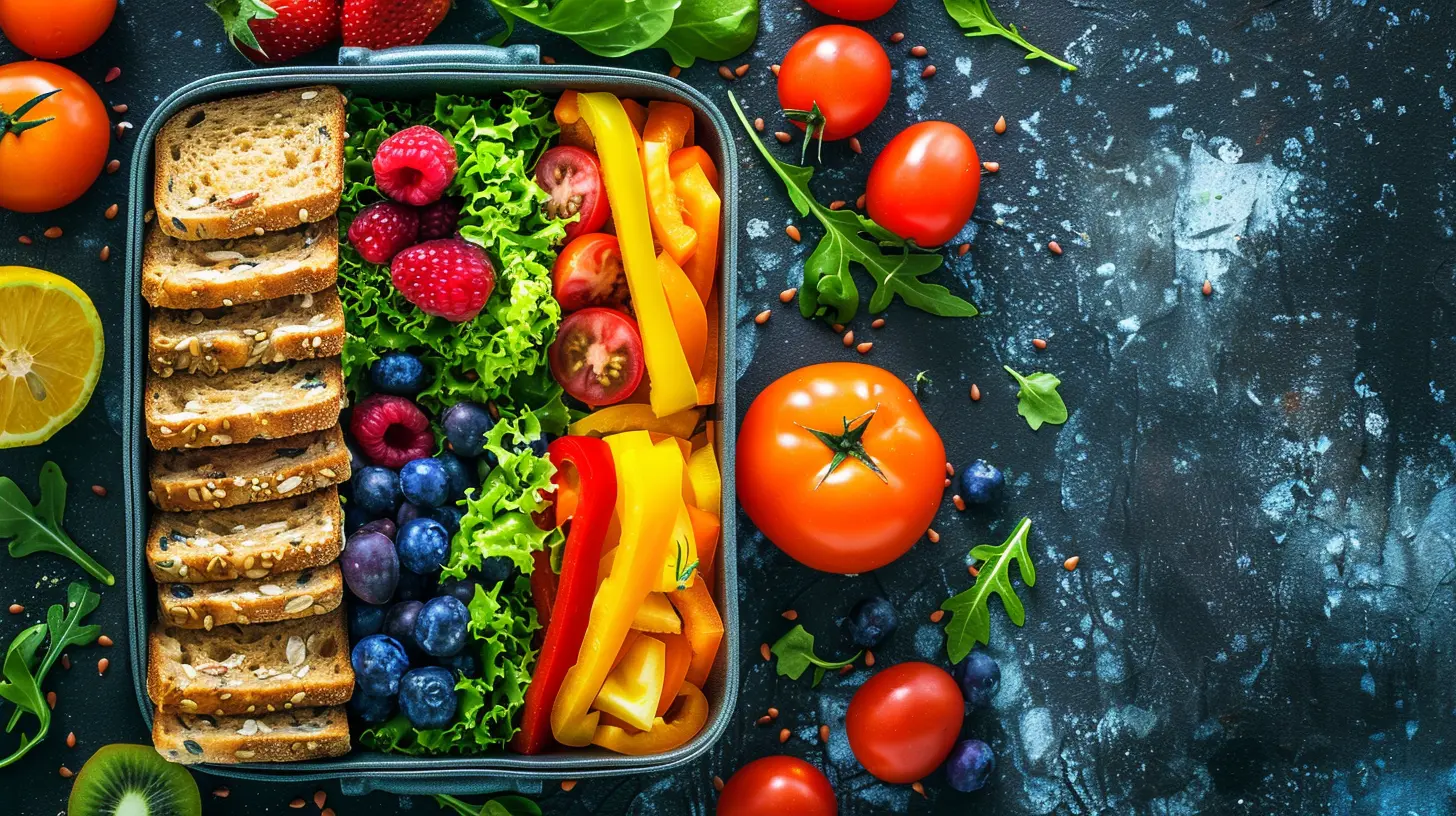How to Pack an Organic Lunch for Work or School
16 June 2025
Let’s be honest, lunch is the highlight of the day—whether you’re hustling at your 9 to 5 or juggling classes and assignments. But here’s the kicker: most of us either end up grabbing fast food or microwaving frozen meals packed with preservatives. Not exactly the path to better health, right?
What if you could enjoy a meal that’s not only mouth-wateringly tasty but also clean, wholesome, and eco-friendly? Enter: the organic lunch. Packing an organic lunch for work or school isn’t just a healthy power move—it’s downright revolutionary for your body and the planet.
In this full-on guide, we’re diving deep into how to pack an organic lunch with style, efficiency, and (of course) flavor. By the end, you’ll be a lunch-packing legend with zero guilt and a whole lot of green on your plate.
Why Go Organic in the First Place?
Before we get into the “how,” let’s unpack the “why.”✔️ Better for Your Body
Organic food is grown without synthetic pesticides, GMOs, or harmful fertilizers. That means fewer toxins heading into your body and more nutritional goodness staying in.✔️ Kinder to the Earth
Organic farming practices are more sustainable. They focus on soil health, reduce pollution, and save water. By choosing organic, you’re giving Mother Earth a much-needed high-five.✔️ Cruelty-Free and Ethical
Many organic products (especially dairy and meat) come from farms that prioritize animal welfare. That means more humane treatment and fewer hormones or antibiotics.So yeah, organic isn’t just a buzzword—it’s a lifestyle wrapped in intention. Now, let's roll up our sleeves and get practical.
Step 1: Invest in Eco-Friendly Lunch Gear
Yup, the first step doesn’t involve food.You’re gonna need containers and accessories that keep your lunch fresh and reflect your new organic game.
🥪 Reusable Containers
Forget plastic bags. Go for BPA-free glass containers or stainless steel lunchboxes. They’re leak-proof, durable, and don't hold onto food smells. Plus, they make your meal look ten times fancier!🥤 A Good Thermos
For your soups, stews, or warm quinoa bowls, invest in a solid, insulated thermos. Keeps things hot for hours and makes you look like a meal-prep pro.🍴 Utensils and Napkins
Stash a set of reusable bamboo cutlery and a cotton napkin in your bag. It’s classy, eco-friendly, and you’ll never have to grab that flimsy plastic fork again.
Step 2: Create Your Organic Shopping List
Let’s keep it real: going 100% organic overnight can be pricey. So focus on the Dirty Dozen—produce items most contaminated by pesticides.🧼 The Dirty Dozen (Buy These Organic)
According to the Environmental Working Group (EWG), these fruits and veggies have the highest pesticide residues:- Strawberries
- Spinach
- Kale
- Apples
- Grapes
- Tomatoes
- Peaches
- Cherries
- Pears
- Bell peppers
- Celery
- Potatoes
Stick to organic versions of these, and for the Clean Fifteen, you can afford to go conventional if needed.
🛒 Build a Balanced Organic List
When shopping, think in lunch-building blocks:- Protein: Organic eggs, free-range chicken, grass-fed beef, legumes, tofu, wild-caught fish.
- Carbs: Whole grains like organic quinoa, brown rice, whole wheat bread.
- Fruits & Veggies: Opt for seasonal organic produce. It’s fresher and usually cheaper.
- Dairy: Choose organic yogurt, milk, and cheese or go plant-based with almond or oat alternatives.
- Snacks: Think organic granola bars, dried fruit with no added sugar, raw nuts, or air-popped popcorn.
Tip: Buy in bulk where you can, and hit your local farmers' market. Budget-friendly organic goodies? Yes, please.
Step 3: Master the Art of Meal Prep
Don’t panic! Meal prepping doesn’t mean spending your entire Sunday in the kitchen. With a bit of planning, it’ll save you loads of time during the week.🧠 Plan Your Menu
Decide what lunches you’ll prep for the week. Keep it fun and rotate between wraps, grain bowls, salads, and soups. Variety is the spice of life, after all.🧊 Batch Cook
Cook a batch of grain (like quinoa or brown rice), roast a tray of mixed veggies, and grill some organic chicken or tofu. Store them in separate containers, and you’ve got a mix-and-match lunch menu ready to go.🍱 Assemble with Purpose
When packing your actual lunch, follow this simple formula:- Protein (1/4 of your container): Organic tuna, tempeh, hard-boiled egg—you name it.
- Veggies (1/2 of your container): Roasted, raw, or steamed. Load it up.
- Whole grains or healthy fats (1/4 of your container): Think wild rice, avocado slices, olive oil drizzle.
This keeps you full and focused without the 2 p.m. sugar crash.
Step 4: Pack It Right (So It Stays Fresh & Tasty)
Packing an organic lunch isn’t just about the ingredients. It’s also about how you pack it.🌡️ Temperature Control
Keep cold stuff cold and warm stuff warm. Use an insulated lunch bag and throw in an ice pack if needed.🍅 Prevent Soggy Disasters
No one likes a sad, soggy salad. Pack dressings separately and drizzle them on right before eating.🍞 Wraps and Sandwiches 101
Use sturdy bread like whole-grain or sprouted grain to avoid fall-apart syndrome. Soggy sandwiches? Not on our watch.Step 5: Don’t Forget Your Snacks and Hydration
Let’s be real—come mid-morning or late afternoon, we’re all hunting for snacks.🥜 Snack Smart
Pack small grab-and-go organic snacks like:- A banana and nut butter
- A handful of raw almonds
- Sliced cucumber and hummus
- Organic energy bites
These keep you energized and help avoid the vending machine trap.
💧 Drink Up
Skip sugary sodas. Carry a reusable water bottle and hydrate often. Infuse your water with lemon or mint for bonus detox points.Easy Organic Lunch Ideas to Get You Started
Ready to level up your lunch game starting now? Try these simple combos:🥗 Organic Rainbow Salad
- Mixed organic greens- Cherry tomatoes, shredded carrots, cucumbers
- Grilled organic chicken or chickpeas
- Olive oil + balsamic vinegar dressing on the side
🌯 Whole-Wheat Veggie Wrap
- Hummus spread on a whole-wheat tortilla- Sliced avocado, shredded lettuce, grated carrots, grilled zucchini
- Feta crumbles and a hint of lemon juice
🍚 Quinoa Power Bowl
- Organic quinoa base- Roasted sweet potatoes, black beans, kale
- Sprinkle of pumpkin seeds and tahini drizzle
🍜 Mason Jar Soup
- Layered organic vegetables, beans, and pre-cooked noodles- Pour hot broth in at lunchtime and enjoy fresh soup on the go
Bonus Tips to Stay Consistent
Honestly, the hardest part isn’t starting—it’s sticking with it. Here’s how to stay on track.✅ Prep Ahead on Sunday
Do your grocery shopping and basic prepping on Sunday night. Label your containers, store them properly, and thank yourself later.✅ Make It a Family or Roommate Affair
Get others involved! Prepping with someone else makes it fun (and gives you fresh ideas).✅ Keep It Real
You’re not aiming for perfection. If you throw in a non-organic snack here and there, it’s okay. The goal is long-term better choices, not stressing over one meal.Conclusion: Organic Lunch = A Sandwich with Superpowers
So, what have we learned? Packing an organic lunch for work or school doesn't have to be complicated—it just takes a little planning, the right tools, and the motivation to fuel your body the right way.By choosing organic, you’re making a daily vote for your health, the environment, and ethical farming practices. Plus, let’s face it—homemade lunches taste better anyway. You’ll save money, feel energized, and maybe even inspire others to jump on the organic bandwagon.
So tomorrow morning (or tonight, if you're a planner), skip the drive-thru and open up that fridge like a boss. Your body—and the planet—will thank you.
all images in this post were generated using AI tools
Category:
Organic FoodsAuthor:

Laurie Barlow
Discussion
rate this article
2 comments
Leo Martin
Great tips! Packing an organic lunch can be both fun and rewarding. I love how simple ideas can make a big difference in our health. Plus, it’s a great way to save money and reduce waste. Can’t wait to try some new recipes!
June 22, 2025 at 3:42 PM

Laurie Barlow
Thank you! I'm glad you found the tips helpful. Enjoy trying out the new recipes!
Elizabeth Chapman
Packing an organic lunch is the adult version of a lunchbox surprise—only this time, the surprise is knowing you can pronounce every ingredient! Just remember, if your salad starts looking like a science experiment by noon, it’s time to channel your inner chef and rethink that kale!
June 17, 2025 at 3:38 PM

Laurie Barlow
Absolutely! A fresh, well-packed organic lunch can be both fun and healthy. If your salad turns funky, it’s a great cue to get creative and mix it up!


